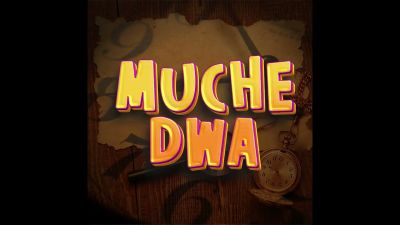Isaac Antwi, one of the cocoa farmers in Ghana, says he has to smuggle his beans to Ivory Coast to sell them at a decent profit even though international prices of the commodity have recently increased.
Antwi is not the only farmer to have turned to the illicit trade from the world’s second-largest cocoa producer, as the country’s currency, the cedi, has fallen sharply and production costs have soared.
“With the cedi losing value every day, selling in Ghana is simply not enough,” said Antwi, who lives in Suhum in the eastern region, 74 kilometers (46 miles) from the capital Accra.
“Prices are better across the border and the stronger currency means I can feed my family and pay off my debts,” the farmer added.
Ghana is emerging from one of the worst economic crises in years after securing a $3 billion credit from the International Monetary Fund and restructuring much of its debt.
The depreciation of the cedi, which has lost more than 20% of its value against the dollar this year, has had a serious impact on the profitability of cocoa farming, even as international prices topped $10,000 a tonne in March before decrease in recent months.
Production costs have risen, with fertilizers and other materials needed for farming becoming increasingly expensive.
Poor road networks have also inflated transportation costs, further squeezing farmers’ margins.
Cocoa farmers are forced to sell their produce to the state-run Ghana Cocoa Board or COCOBOD, which sets prices to help protect farmers from market volatility.
Ghana Electricity Company Disconnects Parliament Over $1.8 Million Debt
In April, the government increased the price of cocoa paid to farmers to $2,188 (33,120 cedis) per tonne, an increase of 58.26%.
But this was not enough to offset rising costs and the lure of higher prices in Ivory Coast and Togo.
“If the government increased the price of cocoa to match our neighbors, smuggling would stop. We have to survive,” said another farmer from Suhum, Serwaa Adjei.
Ghana’s cocoa sector, which accounts for about 10% of the national GDP, is heavily dependent on small-scale farmers.
These farmers, however, found themselves in an increasingly precarious situation.
Illegal gold mining, known locally as Galamsey, is widespread in rural Ghana, negatively impacting water supplies and driving farmers off the land.
“Illegal mining activities are isolating farmers from their farms and polluting the waterways needed to irrigate cocoa plantations,” Boafo told AFP.
He said climate change had also impacted cocoa crops.
“We are doing a lot to improve the situation of farmers. We are motivating cocoa farmers by paying them more for their products,” she said.
“But the economic pressures are immense and we are fighting an uphill battle.”
Obed Owusu-Addai, an activist with EcoCare Ghana, a community rights group, called for comprehensive reforms.
He said: “The government must take urgent action to stabilize the cedi and support farmers with subsidies and better infrastructure.
“It’s not just about higher prices; it’s about creating a sustainable environment for our farmers to thrive.”
Industry experts estimate that more than 100,000 tonnes of cocoa beans have been smuggled into Ivory Coast from Ghana since last year.
According to recent data released by the Bank of Ghana, smuggling, combined with other challenges, led to a $500 million drop in cocoa revenue in the first quarter of 2024.
Boafo said Ghana’s cocoa production is expected to reach 800,000 tonnes by the end of the year, reversing significant losses in recent years.
With over a million people dependent on the cocoa industry in Ghana, the stakes are high.
“We are very optimistic,” Boafo said.
[AFP]The story after cocoa farmers turned to smuggling amid Ghana’s currency collapse appeared first on TheConclaveNg.
 JamzNG Latest News, Gist, Entertainment in Nigeria
JamzNG Latest News, Gist, Entertainment in Nigeria






